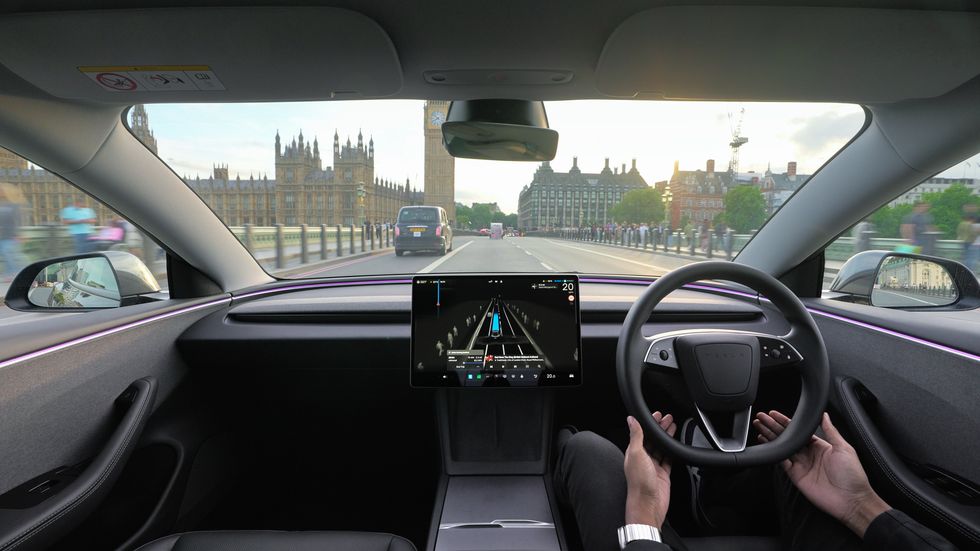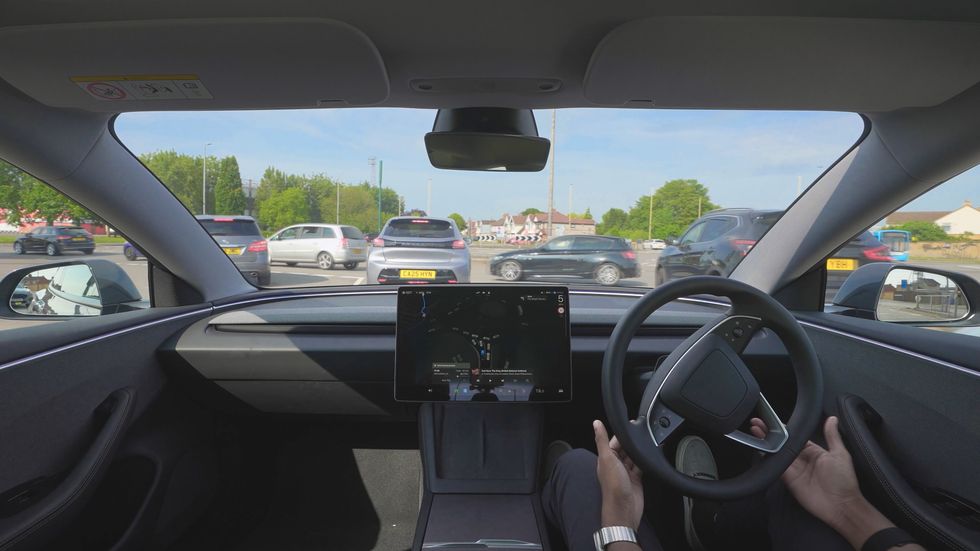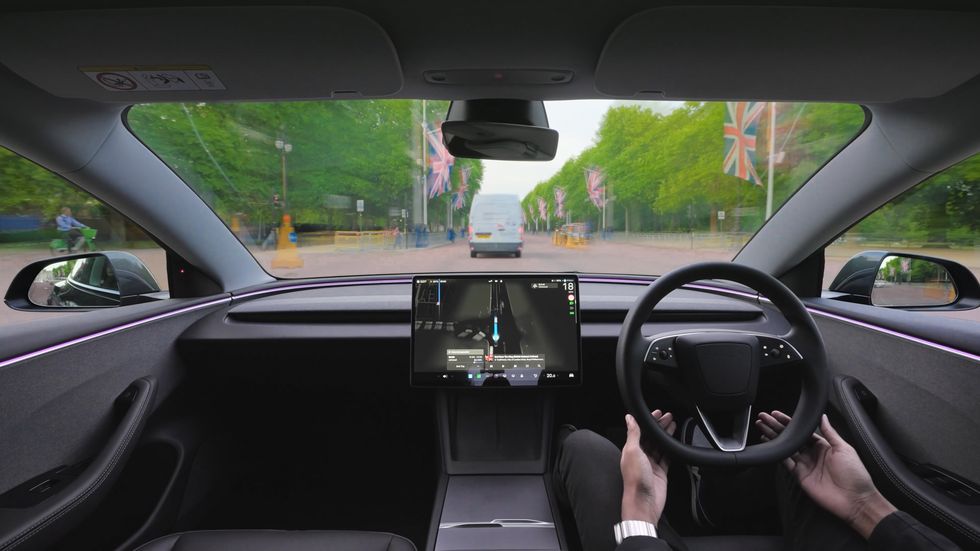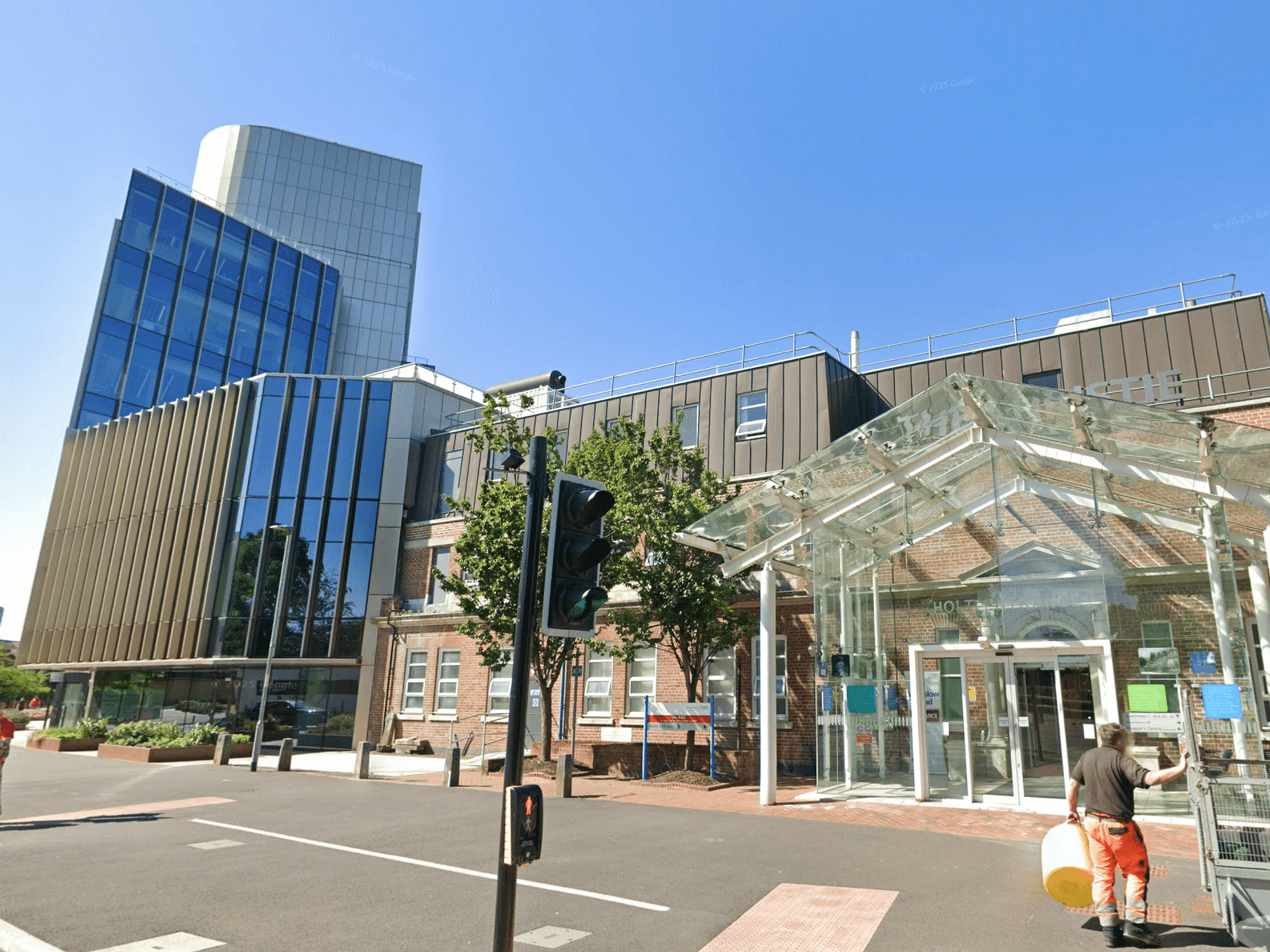Tesla tests self-driving cars on London roads and Magic Roundabout in major step for new technology

'Hats off to anyone, or anything, that can successfully negotiate the Magic Roundabout'
Don't Miss
Most Read
Tesla has showcased its autonomous driving technology through public road trials in the UK ahead of the Government's self-driving plans.
The Elon Musk-led brand released footage of a Model 3 navigating both London's city centre and Swindon's notorious Magic Roundabout without driver intervention.
The three-minute London demonstration captures the vehicle manoeuvring through construction zones and past iconic locations including Big Ben, Buckingham Palace and Downing Street, while the driver's hands remain off the wheel.
The American electric vehicle company confirms that while the test car uses identical hardware to customer vehicles, it runs engineering-exclusive software.
Do you have a story you'd like to share? Get in touch by emailing motoring@gbnews.uk

Tesla tested Full Self-Driving on roads in London and Swindon
|TESLA
Tesla continues to seek official authorisation from UK regulators before its unsupervised autonomous driving technology can be deployed commercially.
The Swindon test particularly highlights the system's ability to handle complex British road layouts, including the legendary Magic Roundabout.
Steve Gooding, director of motoring research charity the RAC Foundation, acknowledged the technical achievement while highlighting regulatory concerns.
He said: "It is a mistake to think that driverless technology won't be able to cope with the intricacies and idiosyncrasies of the UK's roads - hats off to anyone, or anything, that can successfully negotiate the Magic Roundabout."
READ MORE: Self-driving vehicles to debut on UK roads within months as Labour prepares to launch new rules

A self-driving Tesla on the Magic Roundabout in Swindon
|TESLA
However, he cautioned that authorities face significant challenges in ensuring comprehensive safety standards.
Gooding added: "The regulatory test self-driving vehicles need to pass is not whether they can cope with our roads on a given day, it is whether they can cope every day in every combination of circumstances they might encounter."
He particularly emphasised concerns about unpredictable human behaviour, noting the systems must handle situations "where the human drivers around them might be less inclined to stick to the rules".
Labour recently unveiled a public consultation on regulations for autonomous passenger services, marking a significant step towards commercial deployment of self-driving vehicles across Great Britain.
LATEST DEVELOPMENTS:
Future of Roads Minister Lilian Greenwood announced the initiative on Monday, inviting public and industry input on the Automated Passenger Services permitting framework and associated legal instruments that will govern autonomous taxi, private-hire and bus-style services.
The consultation arrives as ministers accelerate plans for small-scale autonomous vehicle trials from spring 2026, allowing companies to operate services without safety drivers for the first time.
Members of the public could book these pilot services through mobile applications ahead of the full implementation of the Automated Vehicles Act in late 2027.
The regulatory framework will address crucial aspects, including accessibility provisions for elderly and disabled passengers, local council approval processes, and circumstances for permit modifications or withdrawals.

Self-driving vehicles could become a staple on UK roads in the coming years
|TESLA
The autonomous vehicle sector could generate £42billion for the UK economy by 2035 while creating approximately 38,000 employment opportunities, according to government projections.
Ministers emphasise that self-driving technology could transform transport accessibility, particularly benefiting those unable to drive and residents in rural communities with limited public transport options.
Safety improvements represent another key advantage, as human error currently accounts for 88 per cent of road accidents. The technology promises enhanced mobility and independence for elderly and disabled passengers.
British firms are already leading developments in this field, with Wayve securing over $1billion (£744million) in investment and establishing partnerships with Nissan and Uber, while Oxa has deployed autonomous vehicles at Heathrow Airport and supported bus services in the US.











